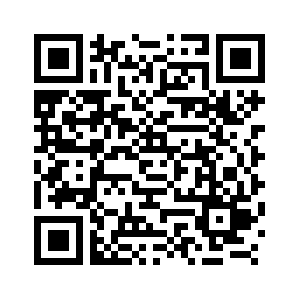by Xinhua writer Zhao Wencai
BEIJING, April 22 (Xinhua) -- Even without firing a single shot or deploying any soldiers in Ukraine, the United States is still considered a combatant in the Russia-Ukraine military conflict. By weaponizing its global financial supremacy, Washington's financial terrorism is escalating the already highly-charged confrontation and sending shockwaves around the world.
The moment Moscow launched the military operation, Washington rushed to maneuver a ton of sanctions against Moscow, removing Russian banks from the international financial messaging system SWIFT, freezing any Russian assets "touching the U.S. financial system," and threatening to "crush Russia's economy."
Russia and the rest of the world have already felt the repercussions. Following the sanctions, ratings agencies downgraded Russia to "junk" status. The Institute of International Finance predicted a double-digit contraction in Russia's economic growth.
On the global scale, the sanctions fueled sharp hikes of oil and natural gas prices. Sizable increase in the prices of key commodities is triggering accelerated high inflation in many countries and weakening the already faltering global recovery from the pandemic.
It is abundantly clear that the United States, by exploiting the U.S. dollar's global dominance, is converting the international financial system into an international sanctions system.
In the mid 1960s, when fixed exchange rates based on the post-World War II gold standard were gradually replaced by a global system reliant on the dollar as the primary means of cross-border payments and reserves, France's then Finance Minister Valery Giscard d'Estaing coined the phrase "exorbitant privilege" to bemoan a United States taking advantage of the dollar dominance for self-interest.
Over the past more than 50 years, the United States has transformed that "exorbitant privilege" into an "exorbitant weapon of mass financial destruction" for geopolitical contention, and pulled the trigger multiple times.
In early of the century, Washington executed the same playbook in its dealing with the Iran nuclear issue, expelling Iranian banks from SWIFT and banning imports of Iranian energy. Even now, the Iranian economy is still struggling in the shadow of Washington's sanctions.
The latest sanctions and threats of more sanctions on Russia are another salient example that Washington is getting increasingly unscrupulous in abusing its dollar hegemony for self-serving purposes. The global community should stay ever more vigilant against Washington's unbounded financial terrorism.
America's messing around is reminding all countries of the dangerous possibility of being cut off from the global financial market at Washington's whim.
"The more we use it, the more other countries are going to diversify due to geopolitical reasons," said Zongyuan Zoe Liu, a fellow for international political economy at the Council on Foreign Relations based in the United States.
As a hedge against the risk of falling into the prey of Washington's financial terrorism, de-dollarization is being accepted as a rational option by more.
Since the 2000s exactly when Washington started using the dollar dominance as a menacing tool for geopolitical coercion, the dollar's position as the world's dominant reserve currency has been going downhill.
According to data from the International Monetary Fund, in 2021, the dollar accounted for less than 60 percent international foreign currency reserves, while in 2000, the number is more than 70 percent.
By contrast, currencies of some emerging economies like the Chinese renminbi are gaining a larger share in international foreign currency reserves and transnational transactions.
People with basic economic knowledge know that the value of a currency rests on people's trust in its issuer, typically a country's government. The eroding dollar dominance is a prognostic indicator of the shrinking trust the world holds towards Washington.
The United States does not lack world-class minds to tell that Washington's addiction to dollar weaponization is provoking a backlash: the world's trust in the U.S. dollar and a global financial transaction system underpinned by the dollar is fading away. There is only one way to explain Washington politicians' craziness: they have grown too hubristic to make rational calls.
Like in the game of Jenga, the tower of the dollar dominance is still standing, yet some of its blocks are being taken away. A complete collapse may take some time, yet seems inevitable in the future if Washington continues down the wrong and destructive path. ■



